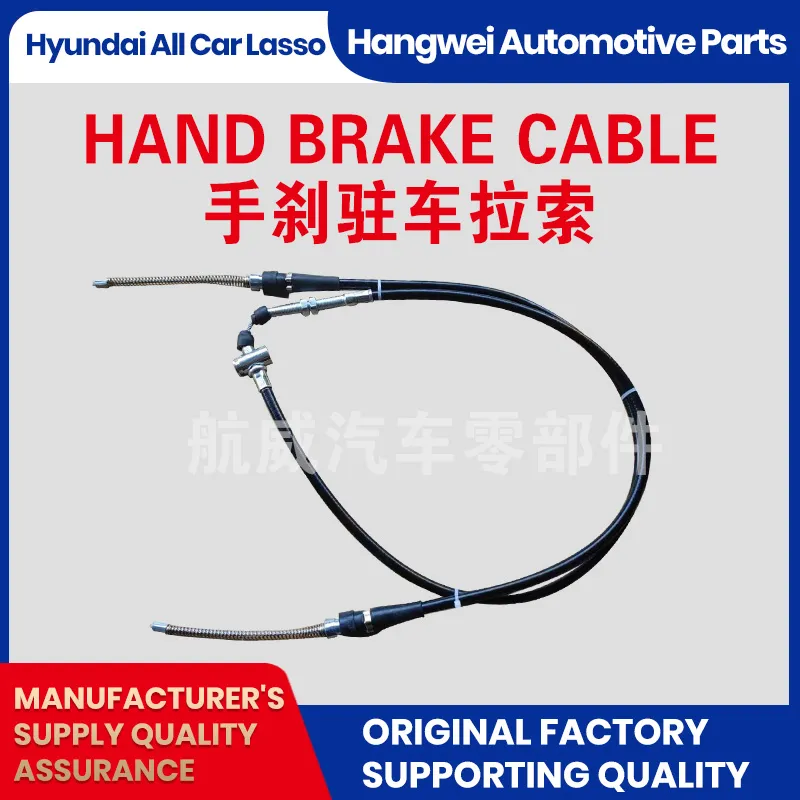Hydraulic Clutch Line Maintenance and Performance Tips for Optimal Vehicle Operation
Understanding Hydraulic Clutch Lines A Comprehensive Overview
The hydraulic clutch line is a crucial component in the performance and efficiency of modern vehicles, particularly those equipped with manual transmissions. It serves as the conduit for hydraulic fluid between the master cylinder and the slave cylinder, enabling the smooth engagement and disengagement of the clutch. In this article, we will delve into the fundamental aspects of hydraulic clutch lines, their operation, common issues, and maintenance tips.
What is a Hydraulic Clutch System?
A hydraulic clutch system primarily consists of two main components the master cylinder and the slave cylinder. The master cylinder is operated by the driver through the clutch pedal. When the driver presses the pedal, the master cylinder generates hydraulic pressure. This pressure is transmitted via the hydraulic clutch line to the slave cylinder, which then engages or disengages the clutch, allowing for smooth gear changes.
The advantage of a hydraulic system over a traditional mechanical linkage is that it provides a more consistent pedal feel, reduces wear on components, and allows for more precise control over clutch engagement. The hydraulic clutch line, typically made from high-pressure rubber or steel, is designed to withstand the intense pressures involved in this process.
How Hydraulic Clutch Lines Work
The operation of hydraulic clutch lines is driven by Pascal's principle, which states that pressure applied to an incompressible fluid in a closed system is transmitted uniformly in all directions. When the driver presses down the clutch pedal, the master cylinder pushes hydraulic fluid through the hydraulic clutch line to the slave cylinder. This action activates the clutch mechanism, allowing the driver to change gears easily.
In a typical hydraulic clutch system, a reservoir holds the brake fluid or hydraulic fluid, which must remain at a certain level to ensure optimal performance. The fluid is not only vital for pressure transmission but also serves to lubricate seals and moving parts within the system, thereby enhancing longevity.
Common Issues with Hydraulic Clutch Lines
Despite their efficiency, hydraulic clutch systems are not immune to problems. Awareness of potential issues can help vehicle owners take preventive measures.
1. Fluid Leaks One of the most common issues affecting hydraulic clutch lines is fluid leaks. These can occur due to wear and tear on the line itself or from connections where the line meets the master or slave cylinder. A visible leak often results in a spongy clutch pedal or total loss of clutch function.
hydraulic clutch line

2. Air in the Line Air can enter the hydraulic system, causing air pockets that lead to inconsistent clutch performance. Symptoms of this issue include difficulty in shifting gears and a clutch pedal that feels soft or unresponsive.
3. Contaminated Fluid Over time, the hydraulic fluid can become contaminated with dirt or moisture. Contaminated fluid can cause corrosion and reduced efficiency, leading to malfunctions within the master or slave cylinder.
4. Worn Components The master and slave cylinders can wear out over time, leading to leaks or failure in engaging the clutch. Regular inspection and timely replacement can prevent this issue from escalating.
Maintenance Tips for Hydraulic Clutch Lines
To ensure the longevity and reliability of hydraulic clutch lines and the entire clutch system, consider the following maintenance tips
- Regular Inspection Periodically check the hydraulic clutch line for signs of wear, such as cracks, bulges, or leaks. Address any issues immediately to prevent further damage.
- Fluid Replacement Change the hydraulic fluid according to the manufacturer's recommendations. If the fluid appears dark or contaminated, it's time for a replacement.
- Bleed the System If you experience a spongy pedal or difficulty shifting, consider bleeding the hydraulic system to remove any trapped air.
- Monitor Clutch Performance Pay attention to how your clutch feels and responds. Any changes in performance could indicate a problem that needs to be addressed.
Conclusion
In summary, the hydraulic clutch line is a vital component in ensuring the smooth operation of a vehicle's manual transmission. Understanding its function, recognizing potential issues, and adhering to proper maintenance practices can greatly enhance the lifespan and performance of the clutch system. For vehicle owners, being proactive in addressing hydraulic clutch line concerns will result in smoother gear changes and a more enjoyable driving experience.
-
Workings of Clutch Pipe and Hose SystemsNewsJun.04,2025
-
The Inner Workings of Hand Brake Cable SystemsNewsJun.04,2025
-
The Secrets of Throttle and Accelerator CablesNewsJun.04,2025
-
The Hidden Lifeline of Your Transmission Gear Shift CablesNewsJun.04,2025
-
Demystifying Gear Cables and Shift LinkagesNewsJun.04,2025
-
Decoding Clutch Line Systems A Comprehensive GuideNewsJun.04,2025
